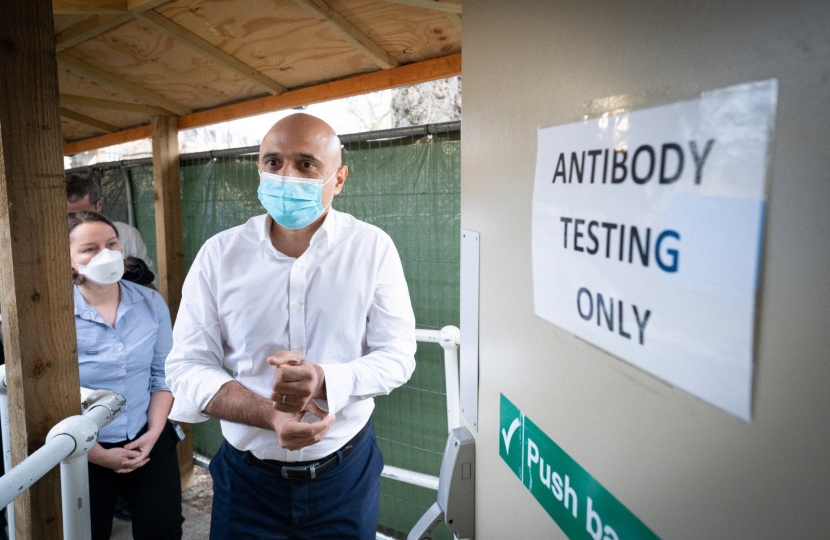
We made major breakthroughs in 2021, but it was also a year where we faced new threats, especially the Omicron variant which continues to spread rapidly across the world.
Despite this new adversary, the steps we took, especially the expansion of this country’s booster programme, meant we saw in the New Year in a far stronger position than we were at the end of 2020.
Even so, this is still a worrying time: according to the latest data from the Office for National Statistics, last week one in 25 people in England would have tested positive for Covid-19, and hospitalisations are also steadily rising.
However, numbers in intensive care units are stable and not currently following the trajectory we saw this time last year during the Alpha wave. As a result, we decided not to put further measures in place ahead of this New Year and we have welcomed in 2022 with some of the least restrictive measures in Europe.
Curbs on our freedom must be an absolute last resort and the British people rightly expect us to do everything in our power to avert them. Since I came into this role six months ago, I’ve also been acutely conscious of the enormous health, social and economic costs of lockdowns. So I’ve been determined that we must give ourselves the best chance of living alongside the virus and avoiding strict measures in the future.
To help us achieve this, we’ve built up three lines of defence which, when taken together, are some of the deepest and the strongest in the world.
First, of course, is the vaccination programme, and we’ve now met our highly ambitious target that we would offer every eligible adult in England the opportunity to get a booster by the end of 2021.
Recent data from the UK Health and Security Agency shows that unvaccinated people are between three and eight times more likely to be hospitalised with Covid-19, depending on their age, and so every jab counts and can help keep someone out of hospital.
Second, we’ve built up a huge testing infrastructure. Over Christmas, we saw how regular tests can give us the confidence to see loved ones and live our lives. Although it has been a time of massive global demand, we almost tripled distribution of lateral flow tests in December, to 300million, and we’re also tripling the supply for January and February compared to our pre-Omicron plans.
Our third line of defence is treatments, and we have the most advanced antivirals programme in Europe. Yesterday, the Medicines and Healthcare products Regulatory Agency approved Paxlovid, a cutting edge antiviral treatment. We’ve secured almost three million courses, and Paxlovid will join an array of Covid-19 treatments that we’re making available.
These three lines of defence will keep huge numbers of people out of hospital. However, even though we’ve seen some encouraging research about the severity of Omicron, its increased transmissibility means it can still lead to significant numbers of hospitalisations.
Due to the time lag between infections and hospitalisations, it’s inevitable that we will still see a big increase in people needing care from the NHS over the next month. This is likely to test the limits of finite NHS capacity even more than a typical winter.
I’ve been working closely with the NHS, to make sure it is ready and resilient for what lies ahead. We’ve recruited almost 20,000 more clinical staff since September 2020 and we’re boosting bed capacity too, including through new Nightingale surge hubs within hospital grounds.
As we begin 2022, we also enter our third year in a global pandemic – a pandemic that is still far from over. While we face it in a stronger position because of all the incredible work that’s been done this past year, we all have a part to play in making sure we get off to the best possible start: by keeping each other safe, testing ourselves regularly, and if we’re eligible, by getting the jab.
You can read the full article in the Daily Mail, 01/01/2022:
